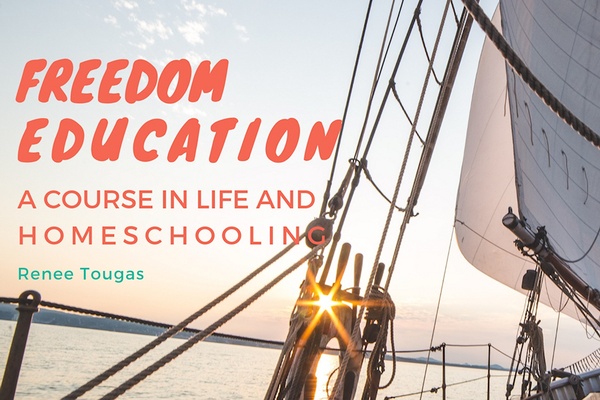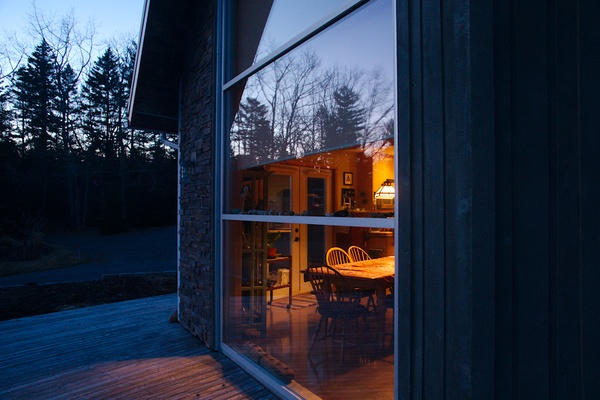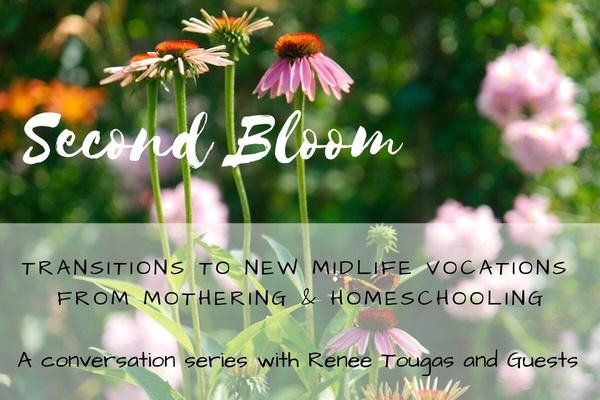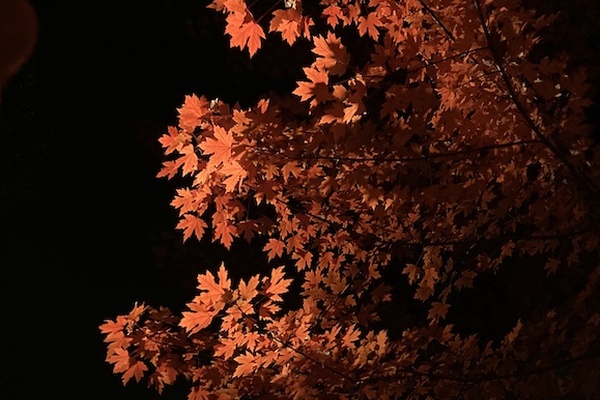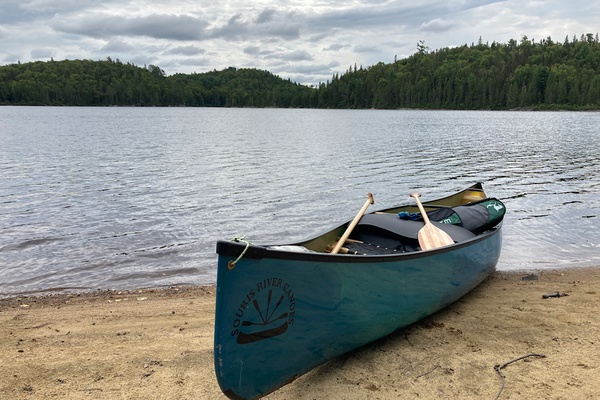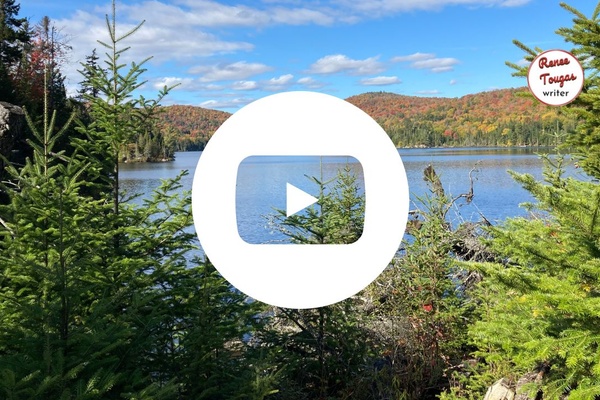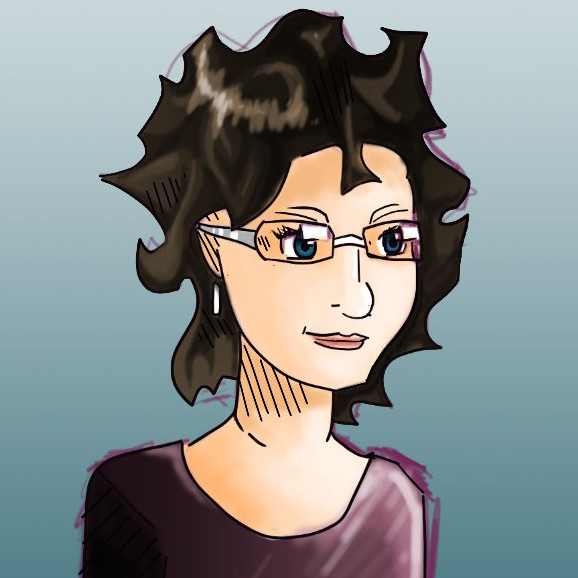Get posts by email
The beating of my wild heart (aka: my feminism)
May 3, 2024
Read or download the pdf version here of this essay here.
I’ve also produced an audio recording of this essay.
↓ Audio recording of essay↓
And finally, I also recorded a video version of this essay.
My recent essays in the quest for a work “thing” blog series have discussed feminism, which has me digging through my digital drafts to remind myself of what’s been percolating in me about this subject.
So far in this series, I’ve shared a smidge of feminist critique of our culture and my critique of particular feminist discourse.
But in going through my drafts, I realized I wanted to explore the topic of feminism in a dedicated essay and talk about the ideas that animate my feminism.
It’s only recently, since discovering a diversity of feminist theories, that I’ve been able to find resonance with my own understanding and experiences.
Up until this point, I have stayed away from attaching the adjective feminist to my ideas and beliefs because:
a: I have never desired to be emancipated from home, family, and children. (See my last post for more on that.)
b: I have zero interest in joining “lean in” culture or breaking corporate glass ceilings.
c: I am a deeply spiritual person, and a lot of feminisms are very secular and view the world through a lens I do not share.
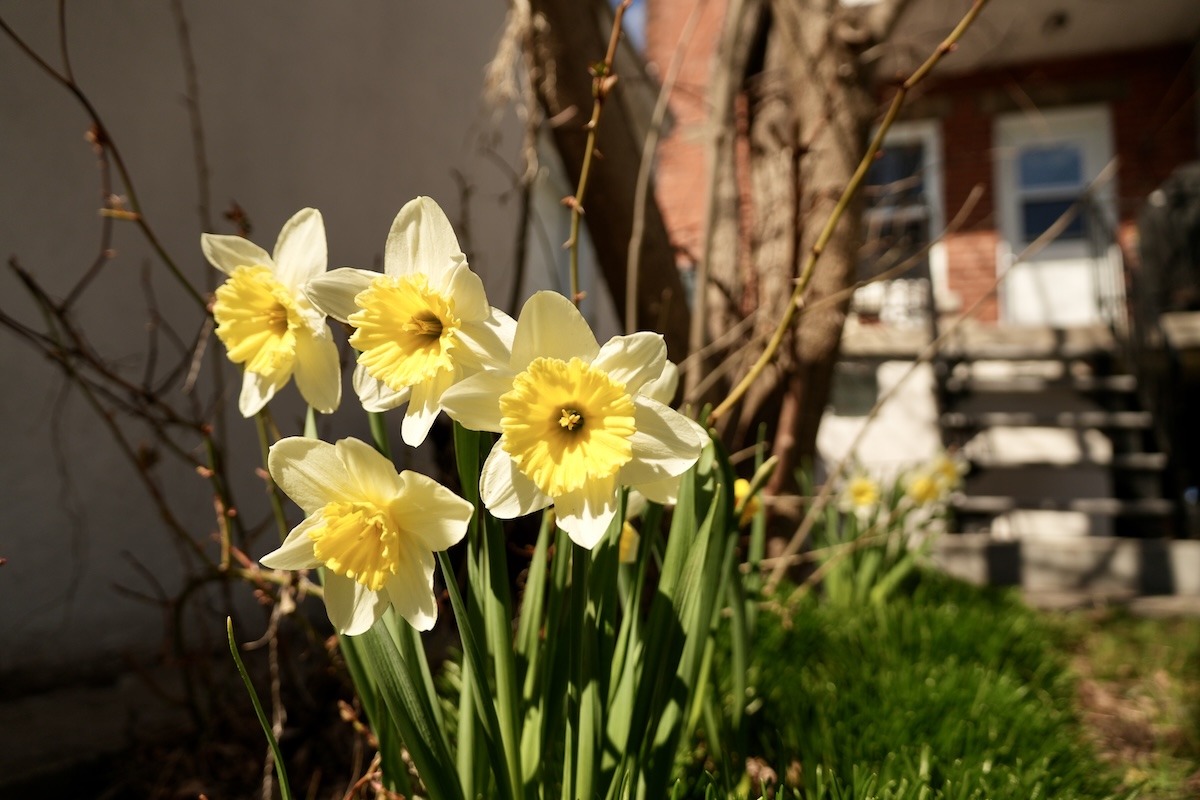
I’m going to explore all three of these ideas in this essay, and I’m going to quote Mary Harrington from a video interview she did with The Spectator to start the discussion.
Liberal Feminism
I always believed that to be feminist meant to pursue unencumbered Rousseauian liberation, [but] mapping the idea of unemcumbered Rousseauism liberalism onto motherhood makes no sense at all.
In this quote, Harrington is speaking of Rousseau, the 18th-century political philosopher. Rousseau was part of the Enlightenment, and his ideas influenced the political philosophy of liberalism. Liberalism is a large topic, and I’m not going to get into it beyond this little toe-dip, as it’s related to feminism.
Liberalism is a worldview that sees all humans as equal, autonomous, and rational. Individualism, liberty, and equal rights are the classic tenets of liberalism. From liberalism, we get the ideals of freedom of speech, freedom of the press, freedom of religion, the separation of church and state, the right to due process, and equality before the law.
Although some scholars would say these have existed in places and cultures outside of liberalism, the pursuit of these en masse, politically and culturally, has been under the banner of liberalism following the Enlightenment.
Anyone growing up in the West has been swimming in the waters of liberalism for so long that other ideas can seem anathema to what it means to be human and to pursue the good life.
Liberalism has a lot going for it as a philosophy, and I sincerely appreciate having grown up in a liberal society, but my assessment of it is not without criticism.
Liberalism is a universalizing narrative, i.e., it advances that these ideas are for all people, for all time, in all places. Additionally, liberalism’s earlier iterations advanced equality for only certain kinds of people. Therefore, liberalism was not always a positive development for indigenous people, as it was carried around the world by colonialism and empire-building.
(I want to note here that it can also be argued that where cultures don’t seek to erase each other, liberalism serves to preserve cultures and cultural diversity, i.e.: pluralism.)
Under the auspices of postmodernism, liberalism was scrutinized for diminishing or dismissing whole swathes of human experience and belief.
For example, what if a person, or group of people - a culture - doesn’t believe humans are autonomous beings? What if we’re fundamentally interconnected and part of one whole? And what if that whole includes the Earth and the Cosmos?
Classical liberalism doesn’t account for a philosophical or spiritual holism in its emphasis on autonomy and rationalism.
As much as I have appreciated and benefited from being raised in a liberal society, liberalism as a life philosophy does not corroborate with my experiences or my ontology of fundamental relatedness and connection to all things. This relationality is nearly antithetical to the liberal ideal of unattached autonomy.
This is where liberalism runs afoul of the embodied experience of motherhood (and many other embodied experiences), which brings me back to the quote that started this section.
As Mary Harrington says, “mapping the idea of unencumbered Rousseauian liberalism onto motherhood makes no sense at all.”
I experience and conceptualize my identity primarily in my relations, and in my roles and responsibilities in those connections. This understanding was most visceral and real to me during pregnancy, birth, and caring for my babies.
I was not an atomistic individual, who could do it all or have it all.
In becoming a mother, I brought new beings into existence from my body who were utterly dependent on me for their survival. This was a physiological, psychological, spiritual, and mystically material relationship that I did not want to be liberated from. A long, long evolutionary process had worked to ensure the dependence of the child on the mother and the mother’s attunement to the child. Nature does not intend for me to seek independence from this.
Here’s how Mary Harrington describes this:
To be a free, transacting, and autonomous individual on the liberal model really comes into being with modernity and with industrial civilization. However, this freedom is less possible if you’re a woman, but specifically it’s less possible if you’re a mother, because to the extent that you have caring responsibilities you’re not atomized. And if you’re a mother, your caring responsibilities are quite visceral and embodied… these things tie you down in very concrete ways.
She goes on to say,
I’d always believed that to be a feminist meant to pursue unencumbered liberation on the Rousseauian model and free myself from all the sorts of sexed obligations that came with having a female body. Then I had a baby and I realized I didn’t want to because that kind of freedom is radically incompatible with keeping your baby alive.
Finally, from Mary’s piece How Motherhood Put an End to My Liberalism:
The truth, though, is that carrying and nursing children is neither exactly choice nor coercion: it is an animalistic experience that cuts profoundly across the fantasies implicit in liberalism of free, rational individuals for whom liberation means transcending our physiological natures.
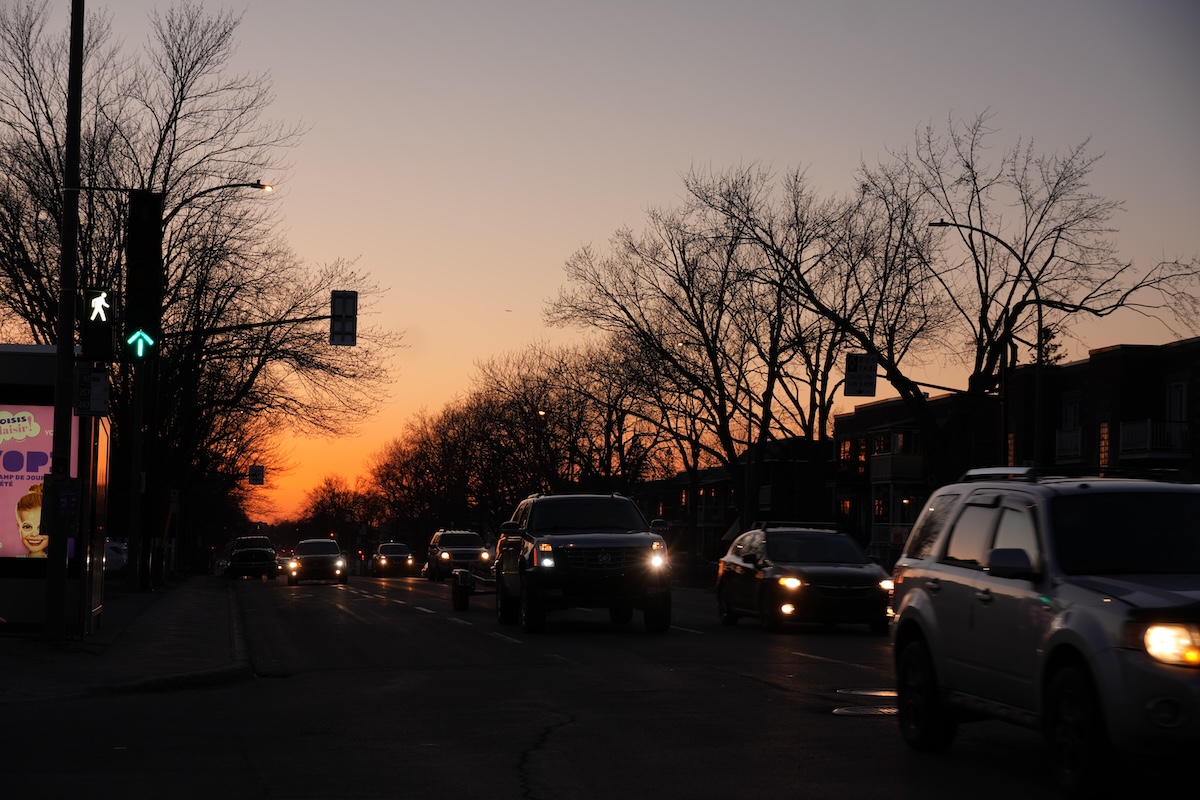
And here we get to the nature of my feminism.
My feminism is an understanding of myself in my human wildness. I conceptualize my human wildness as the drive for sovereignty from an ontological foundation of interconnectedness and relatedness to all things. This ontology is most evidenced and made known to me in the entangled embodiment of birthing and mothering. A relationship and experience that undeniably calls autonomy into question.
In previous writing, I’ve articulated and expanded upon my assertion that autonomy and freedom are our human drive. It’s the direction we orient ourselves to. From the everyday actions of toddlers to the uprisings of oppressed humans throughout the ages, we have ample evidence of this autonomous, sovereign-seeking drive.
Yet, our state of being is fundamentally relational and interconnected.
Liberalism and, by extension, liberal feminism recognize the autonomous drive but not the relationality.
When I think about my feminism, I think about my desire to claim and live this wildness, a self-sovereignty rooted in, and therefore bound to, our fundamental connections.
Wirzba’s creatureliness 1 is another way to articulate what I mean by this wildness.
Humans use our cognitive abilities and institutional structures to civilize ourselves, but we are still creatures.
Cultures, i.e., human social, political, and economic systems, temper our animal natures to good ends. For functioning societies, a certain amount (large amount?) of our nature, which includes our violence, must be civilized by these institutions, relations, and structures.
At this point along the human civilization track most of us welcome all these things and we also live longer with them. But there is some part of me that wants to retain my creatureliness.
I appreciate the civilizing forces that improve our abilities, resources, and capacities to care for each other; that orient our skills and strength to collaboration, not domination or violence. But the track of civilization has also been one of intense domestication of all aspects of our nature on macro and micro levels.
The domestication of our creatureliness can be a type of domination.
And this controlling of our nature and embodiment feels off to me.
So, I resist and rebel.
Of course, this resistance and rebellion can never be fully realized. I am complicit and wholly dependent on civilization. I am what Paul Kingsnorth calls a cooked barbarian.
But I do see my homebirths, homeschooling, gardening and herbalism, wandering and traveling, and building a home and family culture that questions society as my own resistance to being domesticated and civilized to impersonal, inhuman, and sometimes inhumane bureaucratized cultural standards.
I despise and find terrifying the banality of evil that can root and flourish in the bureaucracy of our civilizing structures. This is just one reason I tend to resist institutions.
Women have an embodied knowledge that patriarchy, Christian imperialism, codified religions of all kinds, capitalism, and colonialism - empire, empire, empire, empire - have sought to diminish and eradicate.
I would never claim that this is capital K knowledge by which all people should live. Post-modern that I am, I’m highly suspect of such conclusions.
But what I can claim is that I’ve been taught by religion and science (more specifically, the male-dominated science of the modern era) to distrust and dismiss my body, to be ashamed of my body, especially everything associated with my sex - the bleeding and discharges, the hormones, etc.
Both systems—religion and science—have taught me that I can’t know things in myself; I can only know things outside myself. I must use “independent” measures to quantify and validate my experience and knowledge. Whatever knowing comes from me must come from a rational mind and not my body, based on the philosophical presupposition that these are actually separate entities.
The theories of feminism that I most resonate with are those that call bullshit on this epistemology.
In talking about my own feminism, I am trying to articulate something that is just at the edge of my consciousness and barely within the realm of articulation. I might find better words, metaphors, and frameworks over time, but the best I can describe right now is that my feminism honors and allows me to express myself and live according to my wild, human heart.
Which might just be a kind of romantic humanism. I don’t know.
I don’t live by any one “ism”. My ideological makeup is based on a few core principles layered with a diversity of ideas and beliefs that constantly evolve in response to feedback from my life.
This is where I am at this moment of time, at this stage of my development.
What I feel is a resistance to the encroachment of empire and bureaucratic civilization on my mind, body, and spirit. (She says while using 21st-century technology to record and disseminate this thought.)
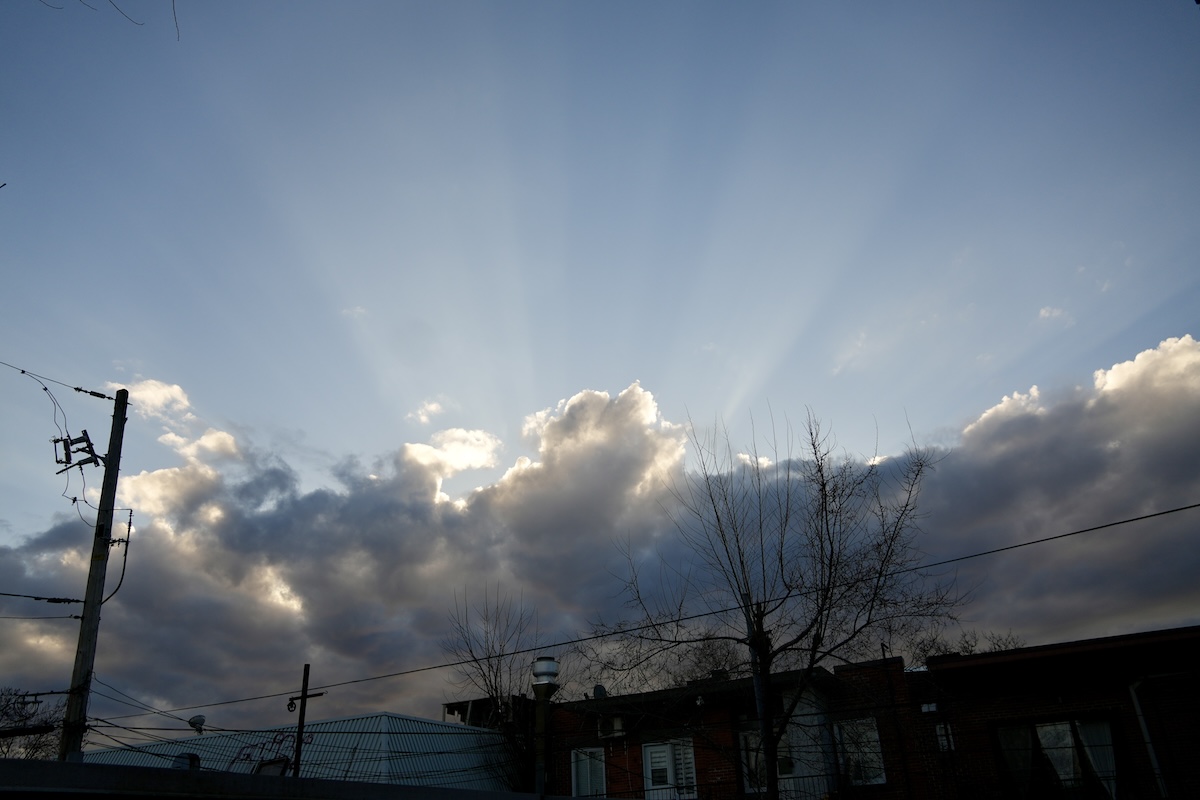
What it isn’t and what it is
I want to be clear that my feminism is not a desire to go back to something. I don’t believe in a golden past. Nor do I believe in inevitable progress and societal improvement.
I believe in potentials and possibilities that we have to instantiate, act upon, to make real. And that this is both individual and collective work.
Mine is not a feminism with concrete, collective action plans for large-scale ecological, social, political, and economic change. Though I sincerely appreciate and owe much of my freedom to all the gains made for women and humanity-at-large by explicitly macro change-oriented feminist movements.
Mine is not a feminism that wants to be boss or rise to the top of an organization or structure. Relatedly, I have no desire to compete with other people in the machinations of our economy. I live in this economy; therefore, I must work in it, but the individualistic competition, amongst many other parts, is profoundly alienating to me.
Equally, I am not comfortable, nor do I consider myself a member of the reactionary “women in traditional roles” club that positions itself as the alternative to the glass ceiling folk. Though I’m okay with traditional roles of all kinds as long as those roles don’t mask, hide, or make excuses for domination or oppression.
I am not a temperance feminist like those of the late 19th and early 20th centuries, advocating that a woman’s place is to use the levers of home to change society and that domesticity alone will salve the societal wounds of industrialization.
These are what I am not, which are easier to define than what I am.
The closest I can come is that I have a desire to listen and live according to my wild human heart, mind, and body. What this actually looks like is ill-defined; it’s certainly not a program, plan, or anything I would prescribe for someone else. There is no pledge of allegiance in this “ism,” no flag or banner under which I march.
My expression of feminism finds resonance in diverse places and causes; some are even in opposition to each other.
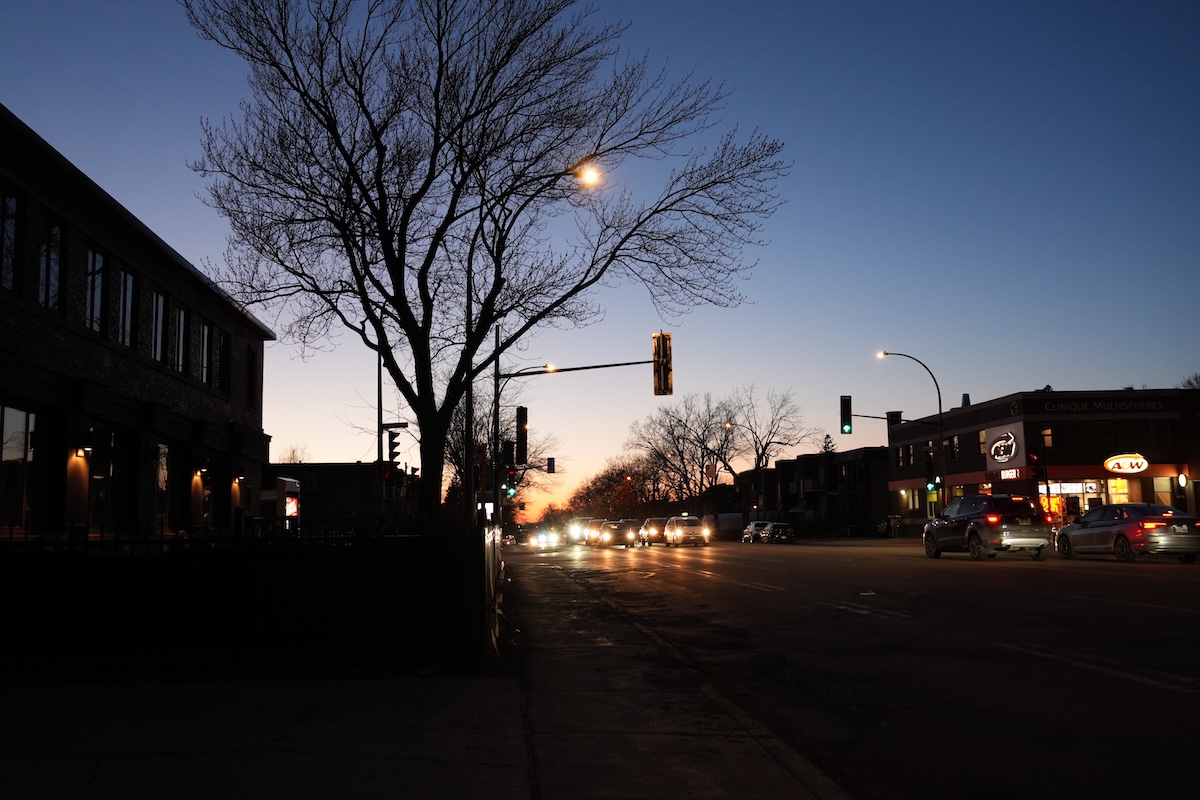
Wildness, a certain un-tameability, and a refusal to bend, heed, or fall in line are the present calling cards of my feminism.
The ironic part is that in our current cultural context, this desire to remain untamed is most accessible to me in domesticity.
Industrialization, or the movement of both men and women out of their homes and homesteads into factories, out of the village, and into the city, mechanized human life in unprecedented ways. We are so used to this mechanization now that we barely notice it, taking for granted and accepting technologies that bind us to these systems and undoubtedly enhance our lives in many ways.
Domesticity, the centering of home, and the building of a home culture are some of the only options available to those of us who feel misaligned with the mechanization, professionalization, capitalization, and systemization of human experience and being.
I want to give you an explicit example.
I don’t want to be human capital. I resist the economic and political ideology of neoliberal capitalism that conceives of human being-ness and selfhood in service to or as an instrument of, the market.
Conceiving oneself and others as instruments of the market, where your traits are filtered, measured, and understood by the ways in which they can support economic growth and development, is a particular belief system. It’s a story. But this story is so pervasive that we don’t even recognize it as a story. Instead, we think of it as Reality. This is just the way things are.
Our human traits, abilities, skills, and experiences are evaluated, by which I mean literally given low or high values, for how they can contribute to the growth and needs of the economy.
Schooling is replete with illustrations for this. Creative thinking skills help fuel innovations for the economy. Collaborating with peers prepares you for the workforce. Problem-solving, accountability, efficiency, productivity, etc., are all valued for the same economy-supporting reasons.
The centralization of the economy in our lives is so ubiquitous that some of you reading might be asking yourself, “well, what else is there?”
I won’t answer that for you. The fact that we even ask the question demonstrates my point.
We live on a beautiful blue-green planet, shared with amazing and yet-to-be-discovered creatures, in a mind-blowing universe. What else is there indeed?
I am repelled by and resistant to our culture’s story of human being-ness as an instrument of capitalism. I can think of many answers to the question: what else is there?
Given that I have myriad alternate answers to this question, where can I live these answers, live these values?
Where can I be who I really am and who I really want to be?
For me, that’s home-culture and home place.
When I leave the safety of home culture, I have to armor myself. I have to steel myself against what I consider to be dehumanizing ideologies. I have to speak a different language to describe myself. I have to hide my values at worst and compartmentalize them at best. I have to make myself marketable.
I hate doing this to myself. Wearing armour is very heavy so I try to remain as unarmored as possible, which means an aching vulnerability. But it’s the reconceptualizing of myself in marketable attributes that really eats at my soul.
Home is where I can build the safety for my wild, untameable heart and the hearts of others. It’s where I don’t have to reframe who I am for someone else’s measure or liking.
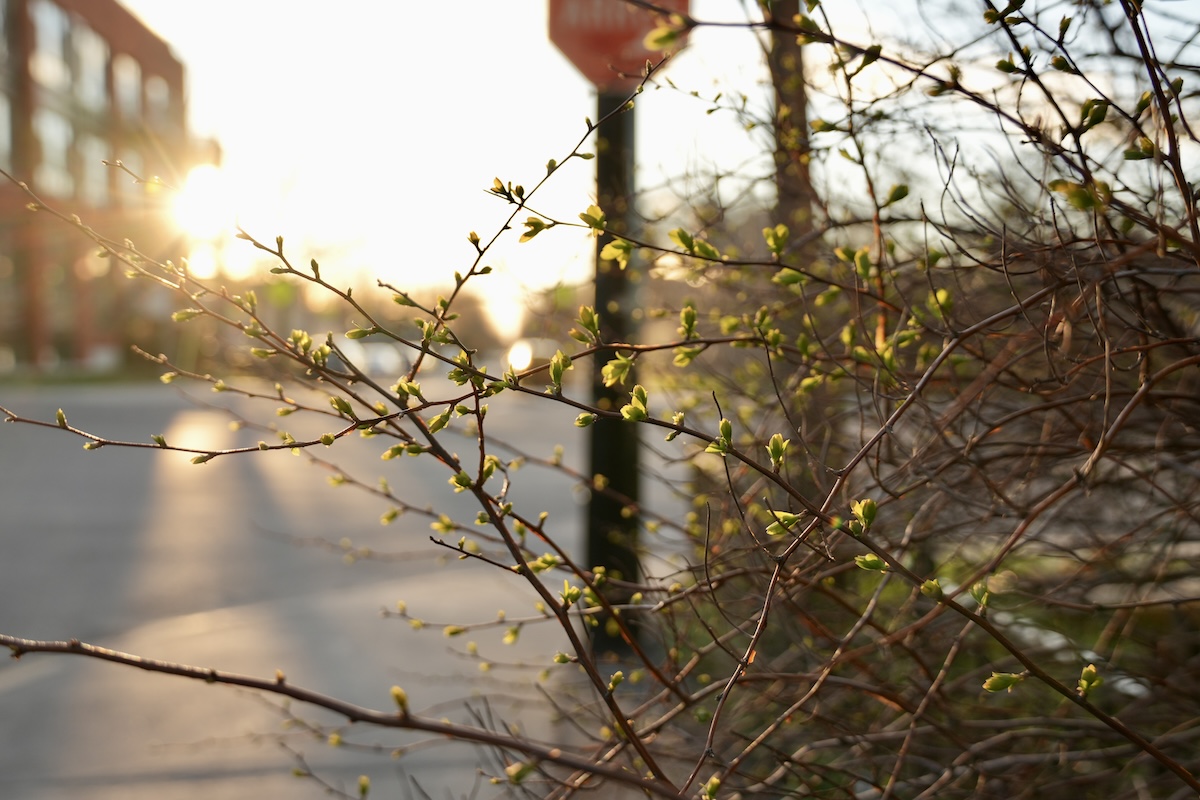
This means that my home and relationships are the most accessible places in my life where I can live out the values of my feminism.
Zooming out even further, past my disdain for making myself marketable, mine is a feminism that opposes domination and exploitation, as well as authoritarian rule over other people’s lives. It stands in opposition to violence and dehumanization of all kinds.
It can be argued, somewhat convincingly, that the civilizing of humans has tempered our violence against each other. I’ve seen the Steven Pinker graphs.
So, my desire to resist the mechanization of human being-ness and develop relations and cultures that oppose, resist, and defuse humans’ inherent violence in all its forms may be an incommensurable reality. (It seems that many of my ideas are.) In other words, maybe mechanization, for lack of a better word, is how we achieve the conditions that subdue the violence in our nature, providing the safety we need for flourishing. I don’t know.
To further critique my thinking, I recognize that specific societal structures and norms need to be in place for this “wild at heart” feminism to even exist and that the macro-level feminist initiatives of earlier times have created the condition for these thoughts to take root. Mine is not a complete feminism, nor a theory or practice by which all will be made right for humanity.
Additionally, I recognize that we live in an economy that requires or exacts certain actions from us so that we can live and eat. The fact that I can talk this much about home culture and even spend time (that others would need to be working for pay to put food on the table) expressing these ideas indicates my own great fortune in the lottery of life.
With these caveats, it’s easy for me to disqualify my thinking, writing, and my feminism.
Truly, these ideas may be of very little value to changing the material condition of anyone else’s life except those within my direct circle of influence and care. And there’s nothing I can do to shield my ideas from that accurate criticism.
Even so, I will go ahead and hit publish, practicing the same grace for my writing as I extend to the writing and expression of others. I recognize the immense limitations of my conceptualizations while acknowledging that an idea or concept, in its interplay with others, might instantiate the possibility of a better future.
The place where I am focused on living these ideas is right here, at home, and in my relationships.
And so we land at the end of this essay. This was an off-shoot from my ongoing series about work but was a necessary diversion as it will provide context that I will be able to reference as I move forward with the ideas in that series.
As always, thanks for reading (and listening & watching).
1 My understanding of creatureliness has been influenced by Wirzba’s book This Sacred Life: Humanity’s Place in a Wounded World, which I have referenced before in this blog series.Interested in getting the next instalment in my Quest for a work thing essay series? Subscribe to my mailing list for free to get all essays and posts delivered directly to your inbox.
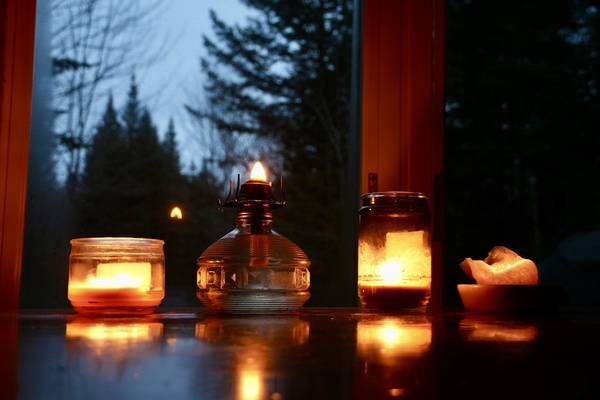
We're leaving the kids
April 5, 2024
I have a goal to produce more more video content after we move to Nova Scotia. But first I'd like to close the Montreal chapter and talk a bit about leaving the kids.
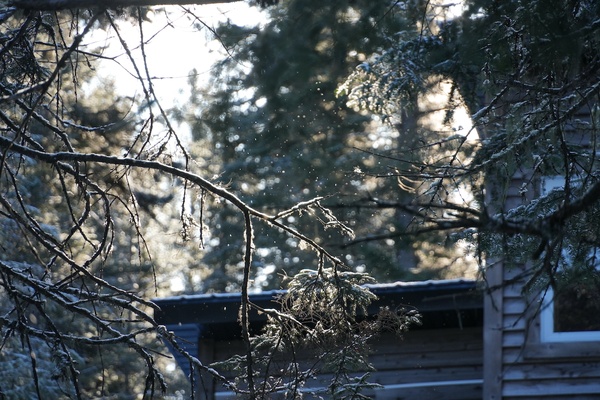
Finding a work “thing” in the cultural, relational, and economic context of my life
March 6, 2024
My marriage, and family life in general, is an economic (as well as political and social) relationship. When Damien and I married we combined our non-material and material assets, resources, talents, and capacities for the flourishing of the whole, which in our case, is the family.
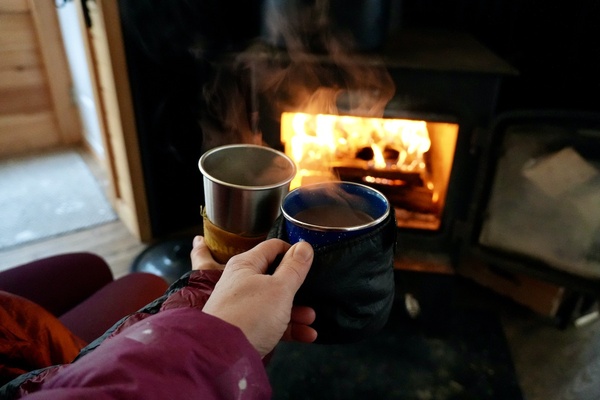
Getting started: Feminism, patriarchy, capitalism, neoliberalism, Marxism and the family in 1,500 words
March 1, 2024
I want to talk about the context in which the work exists and from which our work decisions are made.
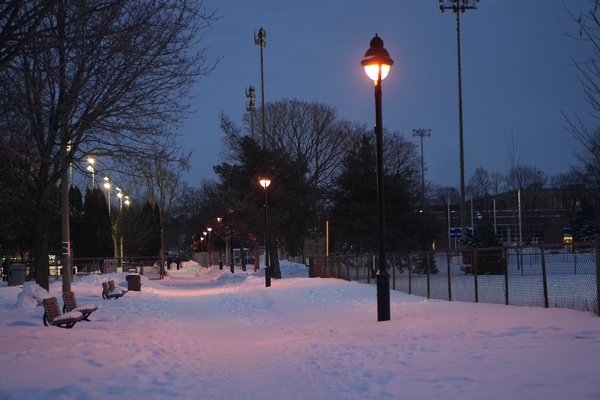
The quest for a work “thing”: Introduction
February 20, 2024
Still looking for the “thing” that will captivate and direct my vocational capacities post-child raising and homeschooling.
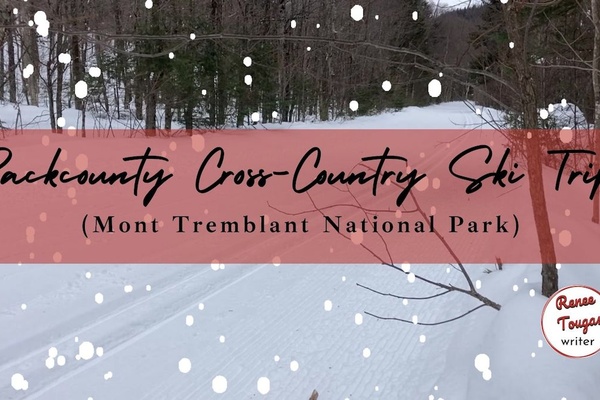
A winter ski trip to the woods
January 31, 2024
A video of solo ski trip in Mont Tremblant National Park In mid-February 2023.
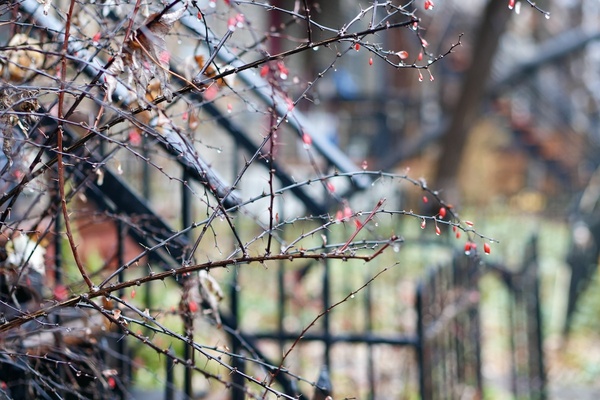
My Philosophy of Education
January 24, 2024
I’ve been thinking about this 25 years. Living it for nearly 24 years. Writing through its evolution for 20 years. And finally, in just the last four months I have been crafting it as a publishable document by applying philosophical concepts and frameworks to an analysis and reflection on this quarter century of thought and practice.
